Football is a thrilling, high-energy sport that demands speed, strength, and agility. But with its intense sprints, sudden stops, powerful tackles, and quick directional changes, the risk of injury is high. Players often face challenges like ankle sprains from awkward landings, knee injuries such as ACL or MCL tears from sudden pivots, hamstring strains from explosive runs, and even concussions from head collisions. These injuries can range from minor muscle strains to severe fractures, potentially keeping athletes off the field for weeks or months.
That’s where Amicare steps in. We specialize in advanced sports injury management tailored for footballers—whether you’re a professional player or a weekend competitor. Our expert team of sports doctors, physiotherapists, and rehabilitation specialists focuses on accurate diagnosis, effective treatment, and personalized recovery plans. We don’t just aim to heal the injury; we work to restore your mobility, rebuild your strength, and give you the confidence to get back on the pitch without fear of re-injury.
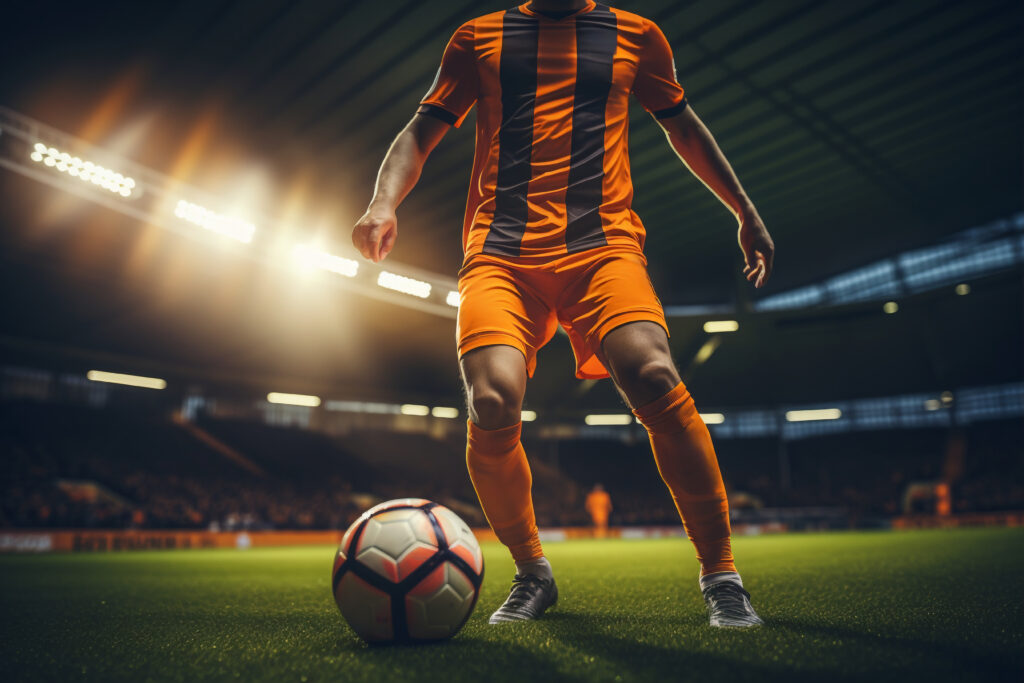
Football is one of the most popular sports worldwide, loved for its speed, skill, and intensity. However, its high-contact and fast-paced nature also make it a sport with a high risk of injuries. Whether you are a professional athlete or a weekend player, the game’s frequent tackles, sprints, sudden direction changes, and physical collisions can strain your body and lead to various injuries. These injuries can affect muscles, ligaments, bones, and even the brain, requiring proper diagnosis, treatment, and rehabilitation.
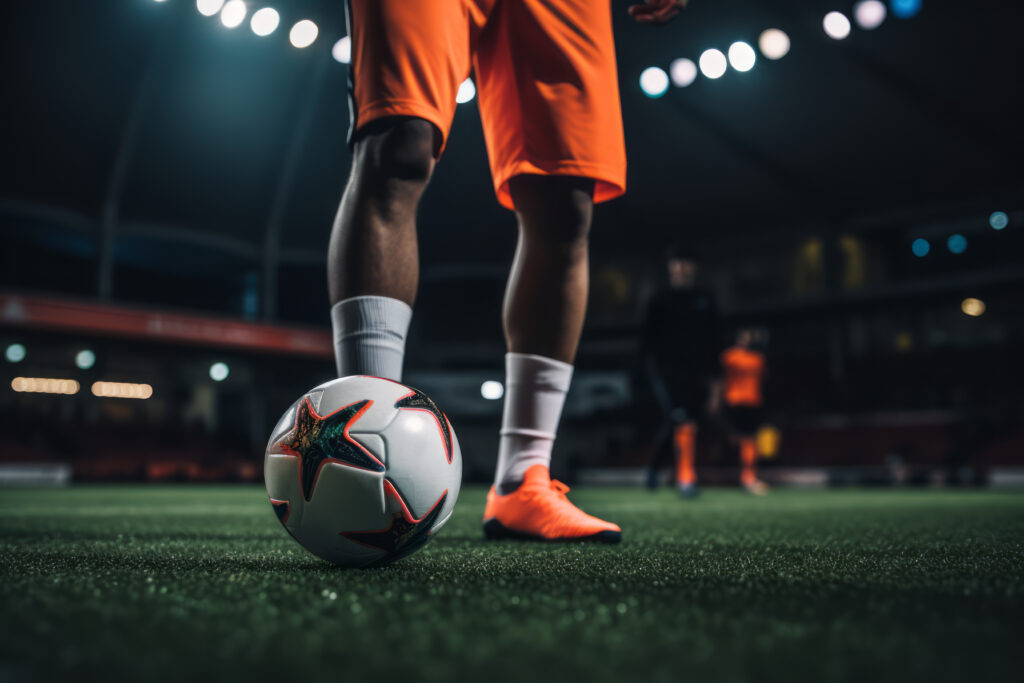
Ankle injuries are among the most common in football, often caused by sudden twists, awkward landings, or tackles. A sprain occurs when the ligaments around the ankle are overstretched or torn, while a strain involves injury to the muscles or tendons in the area.
Typical causes:
Symptoms:
Difficulty bearing weight on the foot

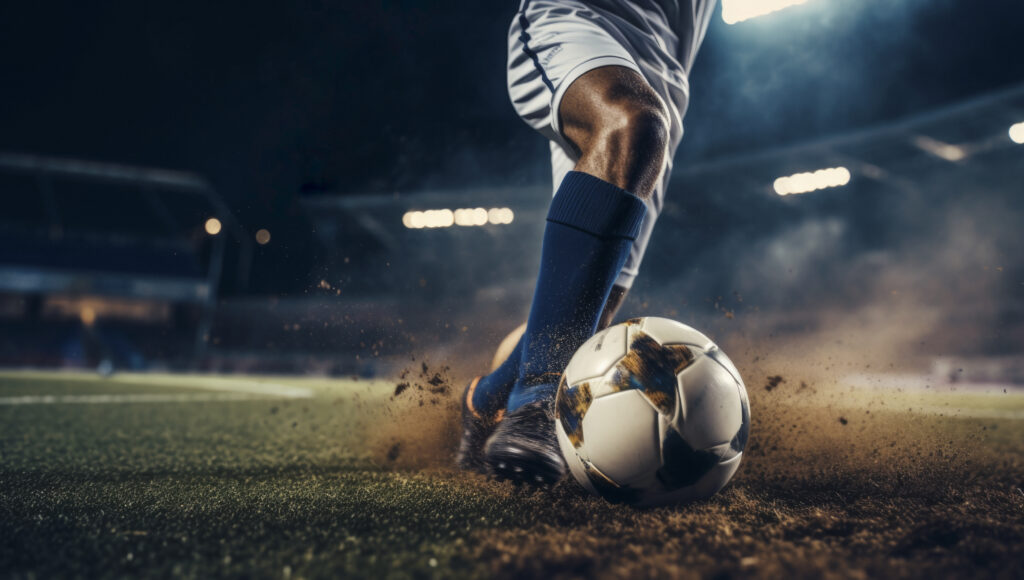
Knee injuries are serious and can take a long time to recover from. The anterior cruciate ligament (ACL) and medial collateral ligament (MCL) are particularly vulnerable in football. These injuries often happen during rapid pivots, sudden stops, or direct contact with another player.
Typical causes:
Symptoms:
Instability or feeling of the knee “giving way”
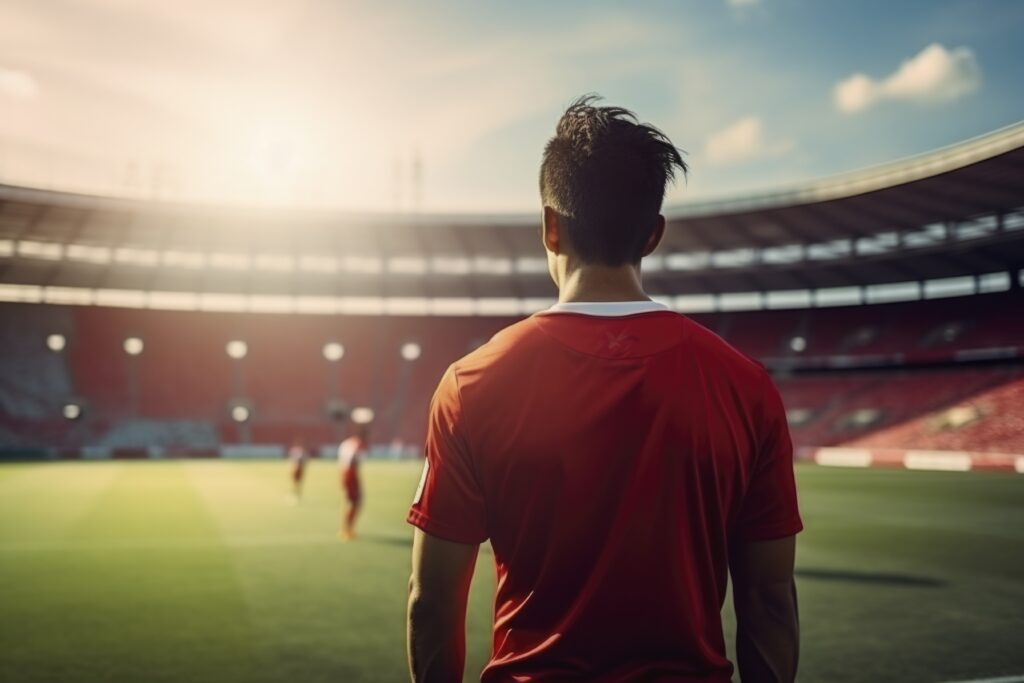
Hamstring strains happen when the muscles at the back of the thigh are overstretched or torn. This injury is common during sprints, especially when a player accelerates suddenly.
Typical causes:
Symptoms:
Difficulty running or bending the knee
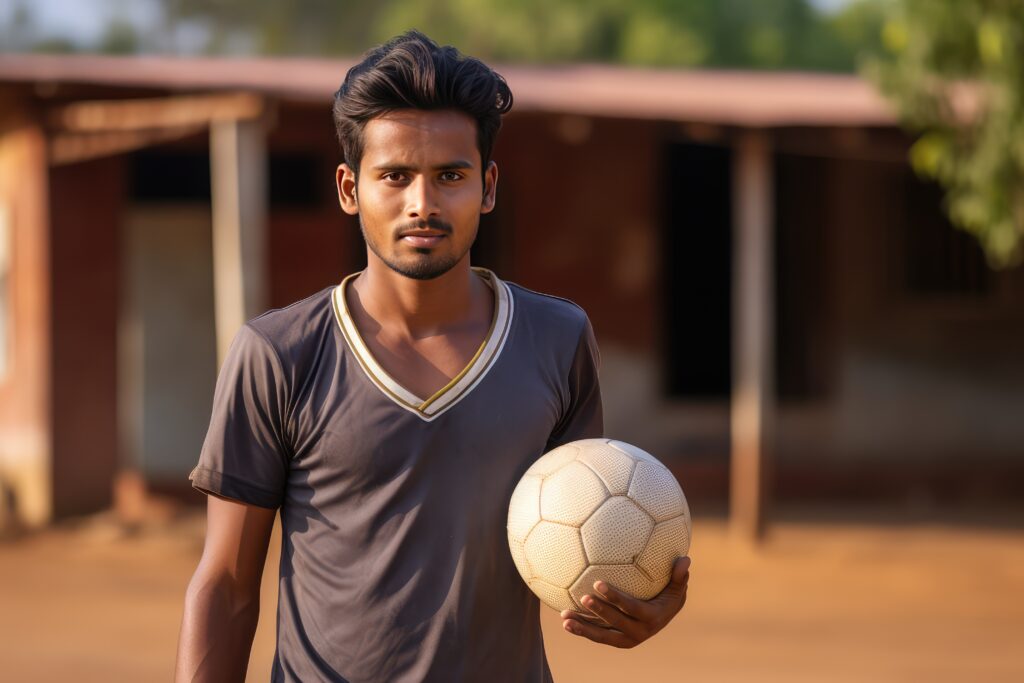
A groin pull affects the adductor muscles located in the inner thigh. This injury is frequent in football due to rapid side-to-side movements, kicking, and sudden stretches.
Typical causes:
Symptoms:
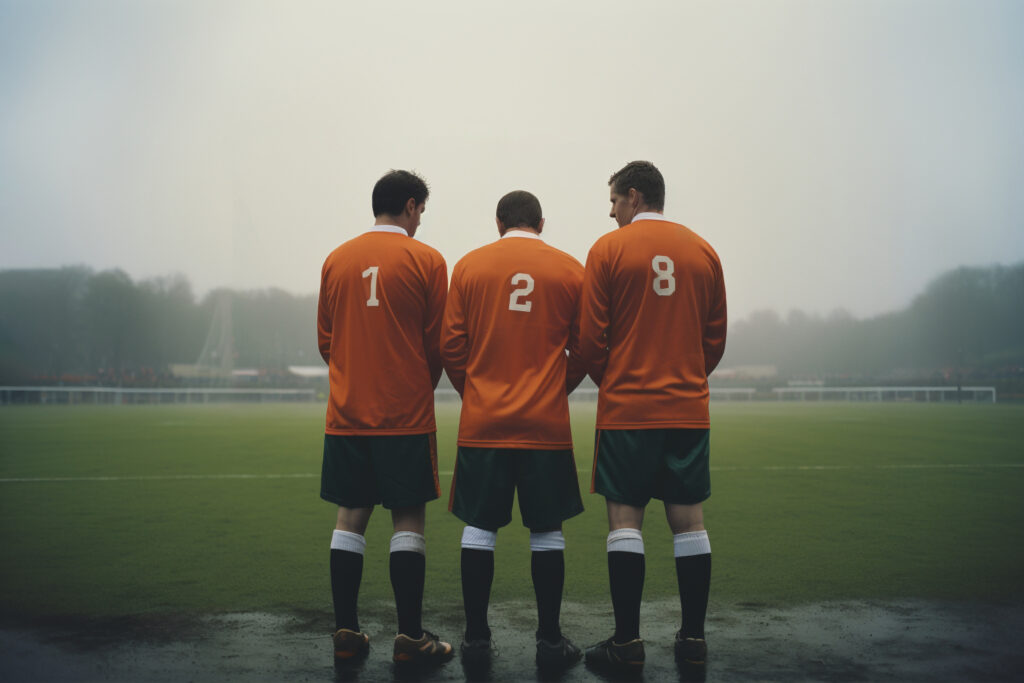
A concussion is a brain injury caused by a blow to the head, face, or neck, or a sudden jolt that shakes the brain inside the skull. While not as common as muscle injuries, concussions are serious and require immediate medical attention.
Typical causes:
Symptoms:
Football is one of the most physically demanding sports, requiring a unique combination of speed, strength, agility, and endurance. However, its high-contact and fast-paced nature makes football players highly susceptible to sports injuries, ranging from minor sprains to severe ligament tears. At Amicare, we specialize in diagnosing, treating, and rehabilitating football-related injuries with a comprehensive and athlete-focused approach.
Our treatment philosophy is built on the belief that every football player — whether a weekend enthusiast or a professional athlete — deserves the highest standard of medical care. We combine advanced diagnostic technology, evidence-based treatment protocols, and personalized rehabilitation plans to help athletes recover efficiently and safely.
At Amicare, our goal is simple — to keep football players performing at their best, free from pain, and with a reduced chance of recurring injuries. Whether it’s a muscle strain, ligament tear, or a concussion, we provide the complete care an athlete needs to return stronger and more confident.
Fractures in football often occur in the legs, arms, or collarbone due to heavy tackles, accidental kicks, or falls. They can be simple cracks or complete bone breaks.
Typical causes:
Symptoms:
Inability to move the injured limb
Fractures in football often occur in the legs, arms, or collarbone due to heavy tackles, accidental kicks, or falls. They can be simple cracks or complete bone breaks.
Typical causes:
Symptoms:
Inability to move the injured limb
Footballers should focus on immediate rest, ice application, compression, and elevation (RICE method) to control swelling and pain. Seeking prompt medical evaluation ensures accurate diagnosis and faster recovery.
Injured players typically follow a structured rehabilitation plan designed by sports injury specialists, which may include physiotherapy, strength training, and gradual return-to-play programs.
Players can reduce injury risk by warming up properly, wearing the right gear, maintaining strength and flexibility, avoiding overtraining, and listening to their bodies for early signs of strain.
The best treatment combines early intervention, physiotherapy, and targeted recovery exercises. Advanced care at specialized sports injury clinics ensures optimal healing and safe return to the field.









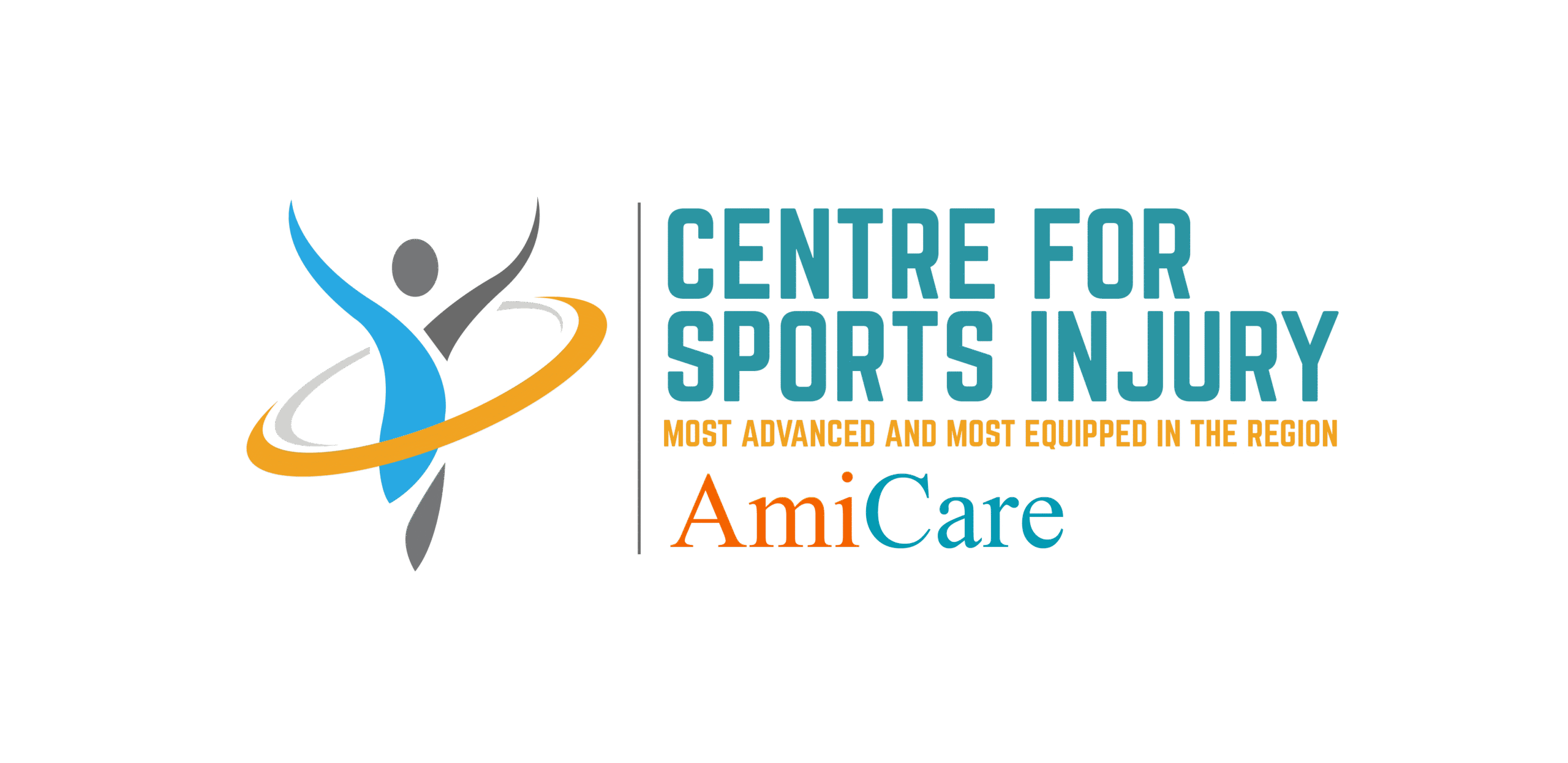
Recover faster, play stronger. Advanced care for ACL tears, shoulder dislocations, ligament injuries, and more — all under expert hands and cutting-edge technology.